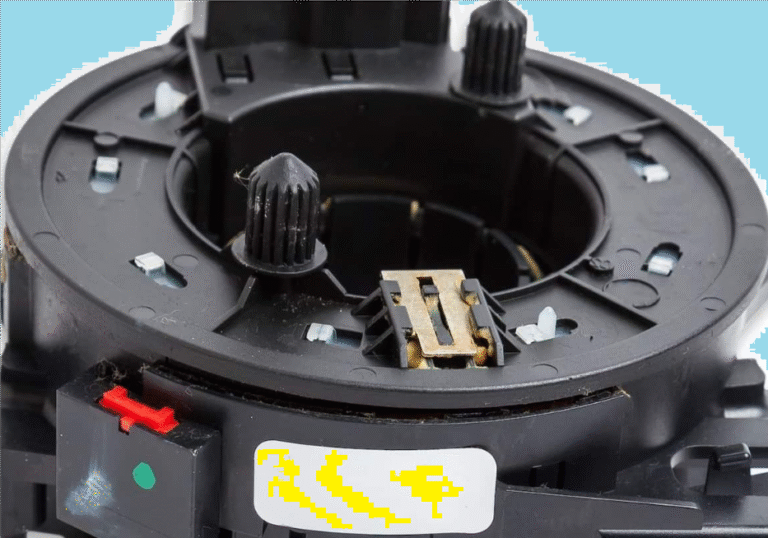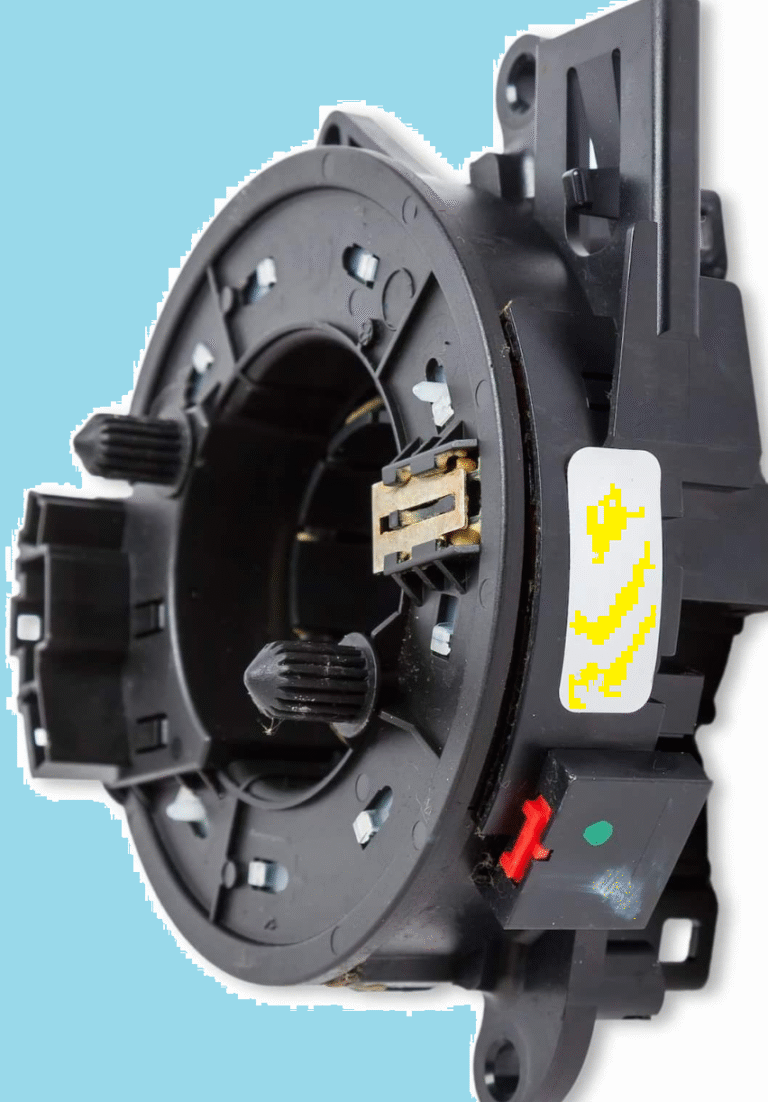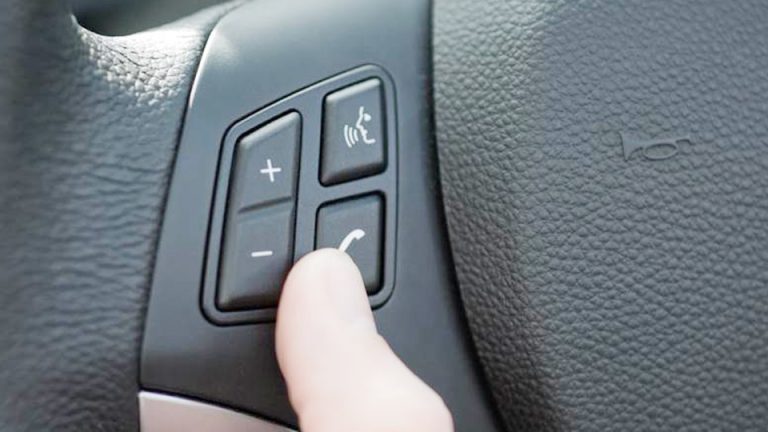Quick Summary
If your steering wheel feels hard to turn, it’s often due to low power steering fluid, a failing pump, damaged serpentine belt, or worn-out steering components. Dirt, leaks, or cold weather can also cause stiffness. Regular maintenance—like checking fluid levels and replacing belts—can prevent these issues.
Now, let’s dive deep into the details so you can drive safely and confidently again.
Introduction: When Turning Becomes a Struggle
Have you ever been pulling into a parking spot and suddenly felt your steering wheel resisting your movement?
You might ask yourself, “Why is my steering wheel hard to turn sometimes?”
This is a common issue among U.S. drivers, especially those driving models like the Ford F-150, Toyota Camry, or Honda Accord. A stiff steering wheel isn’t just annoying—it’s a serious safety concern. It can affect your ability to control the vehicle and may indicate a hidden mechanical issue that needs attention.
In this comprehensive guide, we’ll explore why your steering wheel feels hard to turn, how to diagnose the exact cause, and the best ways to fix and prevent it.
Let’s get started.
Understanding How Steering Works
Before jumping into causes, it’s useful to understand the basics of how your power steering system functions.
Most modern cars use either:
- Hydraulic Power Steering (HPS) — Uses fluid pressure generated by a pump.
- Electric Power Steering (EPS) — Uses an electric motor to assist movement.
When everything’s working right, turning the wheel feels smooth and effortless. But if one component in this system fails—whether it’s a pump, belt, or fluid line—the steering wheel can suddenly become difficult to move.
Common Reasons Why Is My Steering Wheel Hard to Turn
Below are the most common causes of stiff steering, along with symptoms, explanations, and fixes.
1. Low Power Steering Fluid
Why It Happens
This is the #1 reason drivers notice a stiff steering wheel.
Power steering fluid helps transfer hydraulic pressure to make steering effortless. Over time, fluid levels can drop due to small leaks or evaporation.
Symptoms
- Steering feels heavy, especially at low speeds.
- Whining noise when turning the wheel.
- Visible fluid stains under the vehicle.
Fix
- Check your power steering fluid reservoir (usually labeled under the hood).
- Refill with the recommended fluid type (check your owner’s manual).
- Inspect for leaks around hoses or the steering pump.
Pro Tip
For vehicles like the Honda Accord, use Honda-specific power steering fluid, not generic types—it ensures smoother performance.
2. Power Steering Pump Failure (Why Is My Steering Wheel Hard to Turn)
Why It Happens
The power steering pump generates the hydraulic pressure needed for easy steering.
If it wears out, pressure drops, and the wheel becomes hard to move.
Symptoms
- Groaning or squealing sound while turning.
- Fluid looks dark or dirty.
- Difficulty steering even after refilling fluid.
Fix
- Replace the power steering pump.
- Flush and refill with fresh steering fluid.
In a Ford F-150, pump failure is a common issue after 100,000 miles if maintenance has been neglected.
3. Worn or Slipping Serpentine Belt (Why Is My Steering Wheel Hard to Turn)
Why It Happens
The serpentine belt drives multiple components—including the power steering pump. If it’s loose, cracked, or slipping, the pump won’t get enough power.
Symptoms
- Chirping or squealing noises from the engine bay.
- Steering stiffness during acceleration.
- Visible cracks or fraying on the belt.
Fix
- Replace the serpentine belt immediately.
- Check the belt tensioner to ensure proper alignment.
In cars like the Toyota Camry, the serpentine belt should typically be replaced every 60,000–90,000 miles.
4. Cold Weather Stiffness (Why Is My Steering Wheel Hard to Turn)
Why It Happens
Cold temperatures can thicken steering fluid, reducing hydraulic flow and causing temporary stiffness. This is especially common in northern U.S. states during winter.
Fix
- Let the car idle for a few minutes before driving.
- Use low-viscosity steering fluid designed for cold climates.
- Consider electric power steering upgrades if possible.
5. Contaminated or Old Steering Fluid (Why Is My Steering Wheel Hard to Turn)
Why It Happens
Over time, debris, rust, or metal particles can mix into the fluid, reducing its effectiveness.
Dirty fluid increases friction and damages the pump.
Symptoms
- Dark, thick fluid.
- Steering stiffness even at normal fluid levels.
- Whining noises or vibration in the steering wheel.
Fix
- Perform a power steering flush every 50,000 miles.
- Refill with manufacturer-approved fluid.
Regular maintenance helps avoid costly steering repairs later.
6. Faulty Steering Rack (Why Is My Steering Wheel Hard to Turn)
Why It Happens
The steering rack connects the steering wheel to the tires. Over time, it can develop leaks or internal damage, especially in vehicles with high mileage.
Symptoms
- Hard steering at low speeds.
- Fluid leaks around the rack.
- Steering feels loose or uneven.
Fix
- Replace the steering rack and pinion if it’s leaking or corroded.
- For vehicles like the Ford Fusion, expect a $900–$1,500 repair cost at a mechanic.
7. Tire Pressure Problems (Why Is My Steering Wheel Hard to Turn)
Why It Happens
It’s not always a steering system problem!
Low or uneven tire pressure can make steering physically harder—especially during tight turns.
Symptoms
- Hard to turn only in certain directions.
- Vehicle pulling to one side.
- Uneven tire wear.
Fix
- Check tire pressure monthly.
- Inflate to manufacturer-recommended PSI (found on the driver’s door frame).
For example, most Toyota Camry models require around 32–35 PSI.
8. Failing Steering Column or Joints (Why Is My Steering Wheel Hard to Turn)
Why It Happens
Over time, the steering column joints can rust or seize, especially if exposed to moisture or road salt.
Symptoms
- Grinding or clicking noises.
- Wheel stiffness that worsens over time.
Fix
- Lubricate joints or replace damaged parts.
- Use anti-corrosion coatings if you live in snowy or coastal areas.
9. Electric Power Steering (EPS) Malfunction (Why Is My Steering Wheel Hard to Turn)
Why It Happens
Modern vehicles often use electric steering motors. If the motor, fuse, or sensor fails, steering assistance drops instantly.
Symptoms
- “EPS” or “Steering Assist Fault” light on the dashboard.
- Sudden stiffness, especially when turning at low speeds.
- Intermittent steering loss.
Fix
- Scan for error codes using an OBD-II scanner.
- Replace the faulty EPS module or fuse.
- For newer Honda or Toyota models, EPS repair costs range from $300–$1,200.
10. Suspension or Alignment Issues (Why Is My Steering Wheel Hard to Turn)
Why It Happens
If your car’s suspension or wheel alignment is off, steering geometry changes—making the wheel feel heavy or resistant.
Fix
- Perform a wheel alignment and suspension check.
- Replace worn-out tie rods or ball joints.
A bad alignment can also reduce fuel efficiency and tire life, making timely correction essential.
How to Fix a Hard-to-Turn Steering Wheel: (Why Is My Steering Wheel Hard to Turn) Step-by-Step
- Check the Power Steering Fluid
- Locate the reservoir under the hood.
- Refill with the correct fluid type if low.
- Inspect for Leaks
- Look under your car for red, pink, or amber puddles.
- Repair leaking hoses or connections.
- Examine the Serpentine Belt
- Check for cracks or wear.
- Replace if slipping or squealing.
- Test the Power Steering Pump
- Listen for whining sounds when turning.
- If noisy or weak, replace the pump.
- Check Tire Pressure & Alignment
- Inflate tires to proper PSI.
- Get alignment checked if steering still feels off.
- Flush Steering Fluid
- Replace contaminated fluid every 50,000 miles.
- Consult a Mechanic for EPS Issues
- Use a diagnostic scan to pinpoint electrical faults.
Why is my steering wheel hard to run …more
Preventive Maintenance Tips (Why Is My Steering Wheel Hard to Turn)
- ✅ Check power steering fluid monthly.
- ✅ Replace belts & hoses every 60,000–90,000 miles.
- ✅ Flush steering system regularly.
- ✅ Avoid over-turning the wheel at full lock.
- ✅ Warm up your car in winter before driving.
By following these simple steps, you can keep your steering smooth and avoid costly repairs.
When to Visit a Mechanic (Why Is My Steering Wheel Hard to Turn)
If your steering stiffness:
- Happens frequently
- Comes with loud noises
- Or causes the steering wheel to vibrate
It’s time to see a certified mechanic. Ignoring the issue can lead to total steering failure, putting your safety at risk.
FAQs (Schema-Optimized)
Why is my steering wheel hard to turn at low speeds?
At low speeds, hydraulic pressure is lower, so problems like low fluid or a failing pump become more noticeable.
Why does my steering wheel get stiff when I start my car?
This could mean the power steering fluid settled overnight, or the pump is slow to pressurize. Cold weather can make this worse.
Can low tire pressure cause hard steering?
Yes. Under-inflated tires increase friction with the road, making the steering wheel harder to turn.
How often should I replace power steering fluid?
Every 50,000–75,000 miles, or as recommended in your owner’s manual.
Is it safe to drive if my steering wheel is stiff?
No. Hard steering can affect control and reaction time. Get the issue inspected as soon as possible.
Conclusion: Keep Your Steering Smooth and Safe
If you’ve ever wondered, “Why is my steering wheel hard to turn sometimes?” — now you know the main causes and fixes.
From low power steering fluid and belt issues to EPS malfunctions, these problems can range from minor to serious. Regular maintenance and prompt repairs will not only make driving easier but also extend your car’s lifespan.
Whether you’re driving a Ford F-150, Toyota Camry, or Honda Accord, remember this:
A smooth steering wheel means a safer, more enjoyable drive.
So, check that fluid, inspect those belts, and keep your car steering like new!




